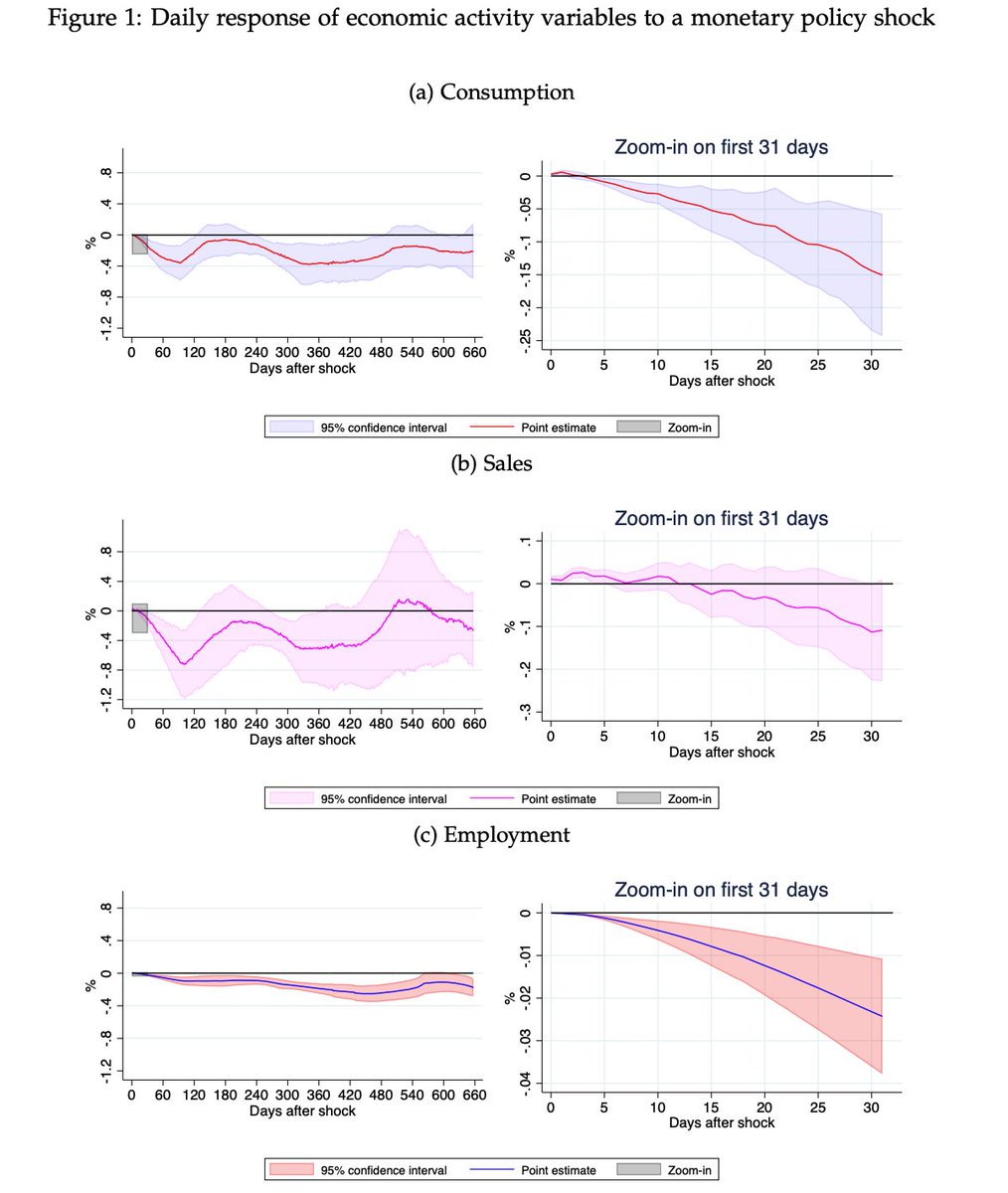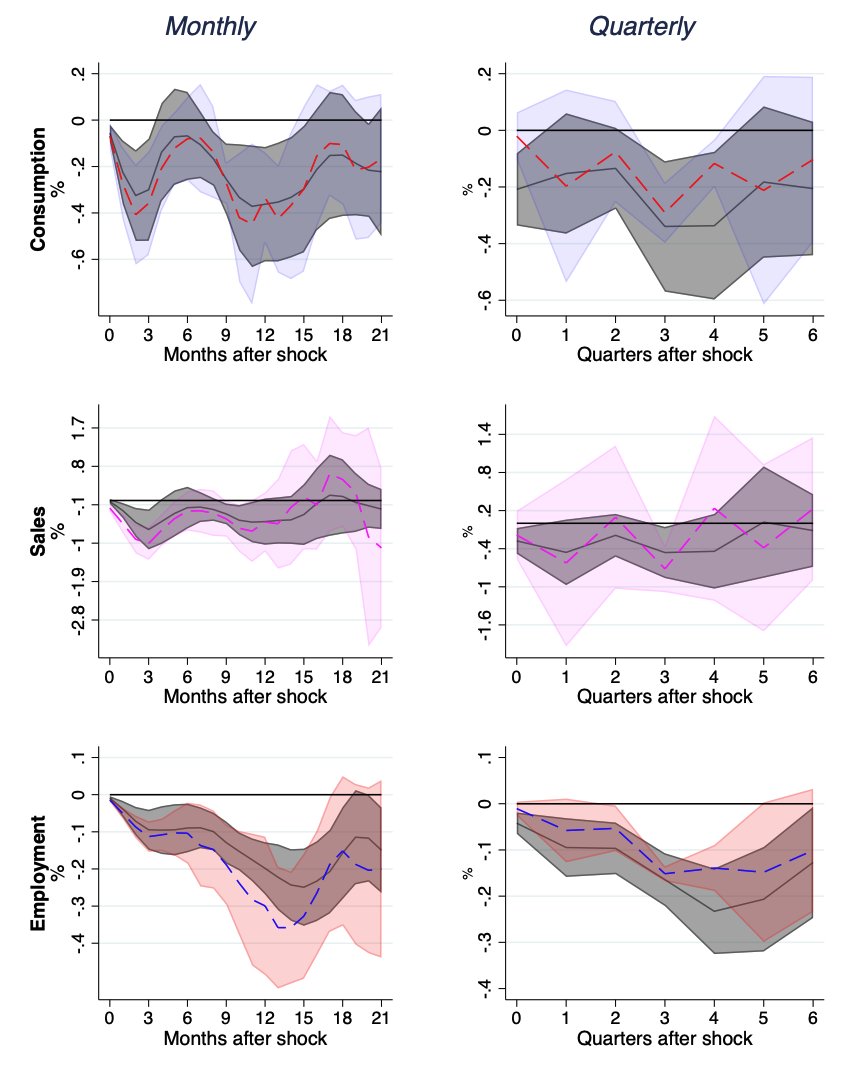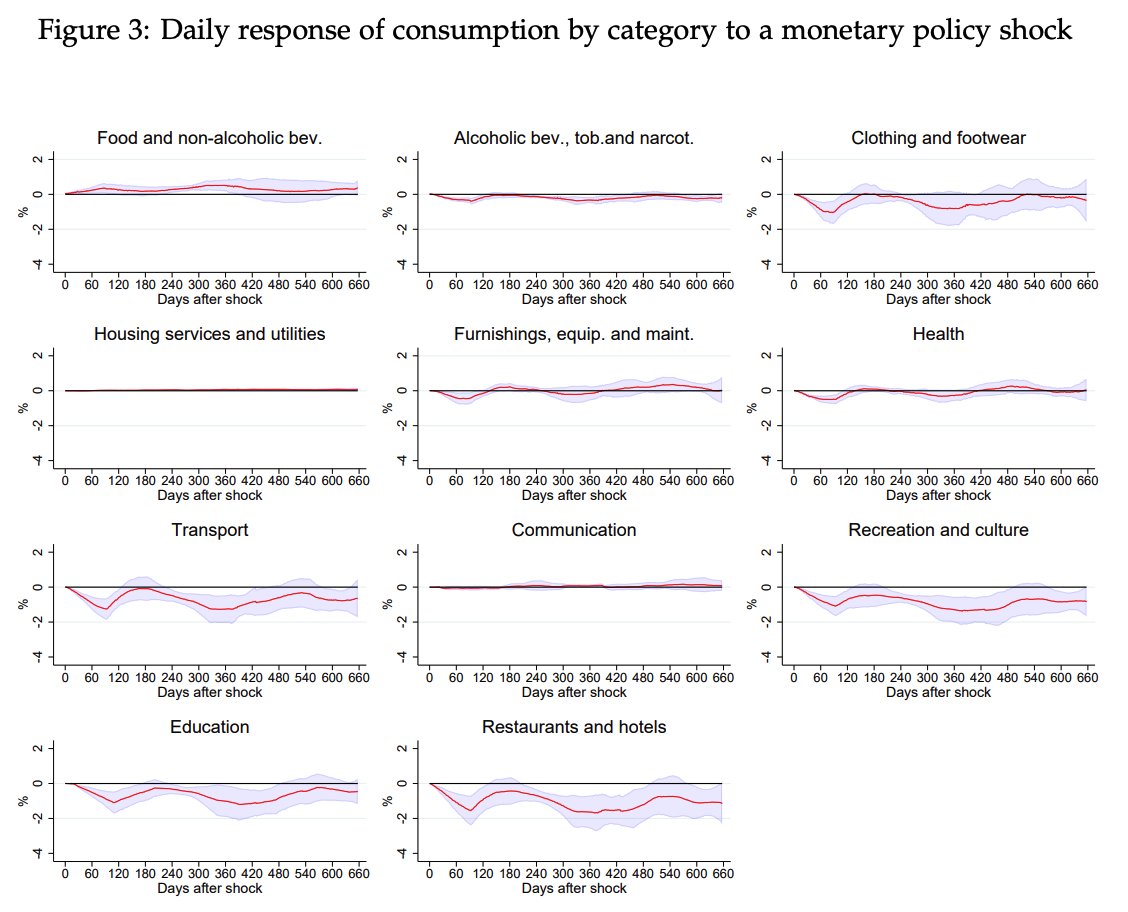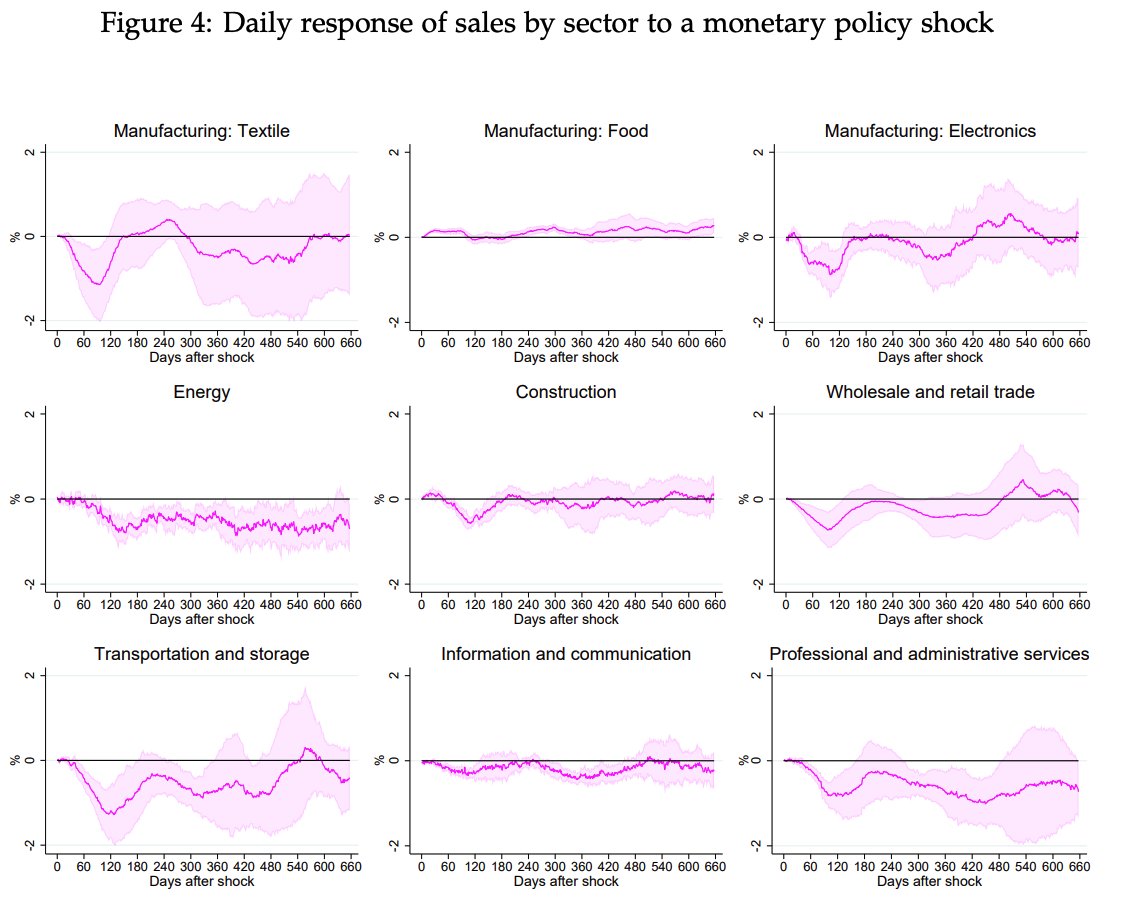
"Monetary actions affect economic conditions ONLY after a lag that is both long and variable" Milton Friedman, JPE, 1961
🚨New paper: we find that this statement is qualified: ❌ONLY
We find important short lags before monetary policy effects fully unravel at long lags 🧵
🚨New paper: we find that this statement is qualified: ❌ONLY
We find important short lags before monetary policy effects fully unravel at long lags 🧵

We use novel consumption (bank transactions), sales (VAT) and employment (social security) at very high-frequency (daily) in Spain, together with high-frequency monetary policy shock identification for the Euro Area, to revisit Friedman's dictum. 2/N
We find significant short lags in the transmission of monetary shocks that are variable in an economically significant way:
-consumption responds to MP shocks in 5 days
- sales in 30 days
- employment immediately but only strongly at long lags
3/N
janeway.econ.cam.ac.uk/working-paper-…
-consumption responds to MP shocks in 5 days
- sales in 30 days
- employment immediately but only strongly at long lags
3/N
janeway.econ.cam.ac.uk/working-paper-…
In addition, we show that time aggregation may explain why previous literature using lower frequency data only finds long lags: time aggregation hides short lags
Aggregating to weekly or monthly frequencies allows the researcher to still detect short lags, quarterly does not 4/N
Aggregating to weekly or monthly frequencies allows the researcher to still detect short lags, quarterly does not 4/N

The issues in time aggregation we document in our paper are relevant to a large body of literature that routinely aggregates identified monetary policy shocks around policy announcements to quarterly or yearly frequencies 5/N
We also explore our rich data to show further that MP shocks affect more durable/luxury goods than essential goods and that downstream sectors react faster to MP than upstream sectors.
6/N

6/N


• • •
Missing some Tweet in this thread? You can try to
force a refresh




